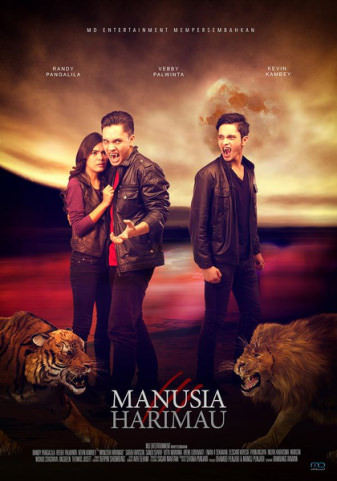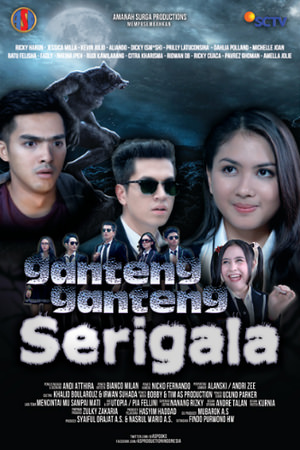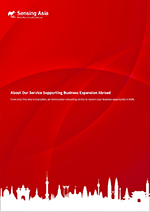
Syarika Bralini
After she worked for the Indonesian cinema chain Blitzmegaplex as a film distribution manager, and headed the film production department, she started her own business and is currently running a media technology and video production company.
Rieko: From your professional point of view, how has Indonesia’s TV content industry developed so far?
Syarika: The development of Indonesia’s media industry in the last fifteen years has been quite high, impacting particularly the pay-TV sectors, such as First Media, and regional-TV sectors, which paved the way for the growth of local TV-program productions. However, my view is that there is still not enough creative breakthrough. Many of the popular programs are imported or adapted ideas, such as the various talent and reality shows. An example of a popular reality show is X Factor , a television music competition. The concept of this show has been imported from the UK, but there is also a local reality show with almost the same content focusing on Indonesian popular songs, called Dangdut.
When it comes to TV dramas, the Manusia Harimau and Ganteng Ganteng Serigala series are currently very popular. They are of similar concept (Harimau revolves around weretigers; Serigala, werewolves).
Additionally, you can see that these two TV programs have striking similarities to The Twilight Saga, an American film series.

Manusia Harimau

Ganteng Serigala

Twilightt: An American movie, released in 2008. A romance fantasy film about a love triangle between a teenage girl, a vampire, and a werewolf.
Rieko: Yet, doesn’t the fact that these kinds of TV programs are popular, mean that the consumers are actually satisfied with current contents?
Syarika: “Satisfied” is a dangerous word in creative development. You see, Indonesia has a strong culture of ‘collective experience’. Television sets are often switched on for hours, even during social gatherings, where no one is really paying attention. In this case, which is more often than not, high rating does not translate to audience engagement. High rating may even serve as “vanity metrics”.
Rieko: What about the film industry? According to a report, about 70 movies have been produced yearly in recent years, but most of them are cheap movies with a mystical content, or comedy films.
Syarika: Films are still way behind its TV counterparts, partly due to the shortage of screens, partly to the lack of creativity in storytelling. Filmmaking is still a high-risk business and unfriendly to investors and financial institutions. We are yet to find a sustainable business model for this sector. Currently, many films are heavily sponsored by brands, or even commissioned by individuals. My view is that the key factor is in the project-design (i.e. story building) phase.
Rieko: How has consumer behavior towards Film and TV programs changed in recent years?
Syarika: With the growth of Internet and mobile technologies, consumers are demanding for programs that are interactive and engaging. Films and TV programs are no longer competing just with each other, but also with other instantly available forms of entertainment, such as online chatting and online shopping. This phenomenon emphasizes the importance of a strong engaging element (i.e. story) in content production.
Rieko: That is true for many countries, including Japan. In such an environment, what do you think are the critical challenges for the Film/TV contents production industry?
Syarika: The critical challenge is re-defining “creativity” itself. In Indonesia, “creativity” is mostly associated with the end-products and less with the design and the creation process, which means there is not much space to innovate.
Last year I put my effort on developing storytelling skills among young talent through the use of the YouTube platform. Unfortunately, this turned out harder than I thought.
I believe Indonesia naturally has what it takes to become a creative superpower. The country’s immense diversities of race, faith, and culture, among others, are ideal ingredients for “creative clashes,” a condition for innovation. However, there are aspects of our culture that inhibit us from making the most of this condition, such as our custom of conformity. We need to reframe this custom and find an agreeable way to go outside the “comfort zone” of proscribed societal expectations and into the uncharted sea of possibilities.
My current project is building a set of tools for “story-thinking”, or design-thinking tools for storytellers. Creativity in this interconnected environment we live today needs deeper level bonding between people. Story thinking helps to engage people through common purpose, that’s where creativity starts.
Rieko: So unless people change, the industry won’t change. Thank you very much for an insightful interview.
*1. Digital Content Association of Japan, 2012
*2. Ministry of Economy, Trade, and Industry, 2014
Our Services
Rapidly providing most essential information for initial stage in business extension abroad, including local environment, business information, market information for individual industry. Industry information of the considered countries can be found here without spending hours and the need to contact multiple sources.
Online Micro Consulting Service : Basic Services
Report on particular B2B market, service industry, including industry outlook, market size (producers price), product output, import/export, number of companies, industrial cost and profit margin, number of full time employees, and average wages.
| Service name | Basic Services |
|---|---|
| Research objectives | Market Information by Specific field |
| Country | Indonesia |
| Industry | Industry Information ・Cinema and Film ・TV/Radio broadcasting |
| Period | Seven business days after the date of deposit |
| Report file | PDF、Excel |
| Price | Per one category per country:150,000 Japanese Yen |
* Reference prices do not include taxes.
We also offer industry structure survey/Company report services.
Industry structure report consists of crucial information such as industrial value chain including structures regarding suppliers, distribution outlets, buyers, and dealers, conditions of facilities and infrastructure needed for business operation, future outlook, business conditions of competitors, and business customs unique to your concerned business industry.
Report consists of collection of specific company information.





